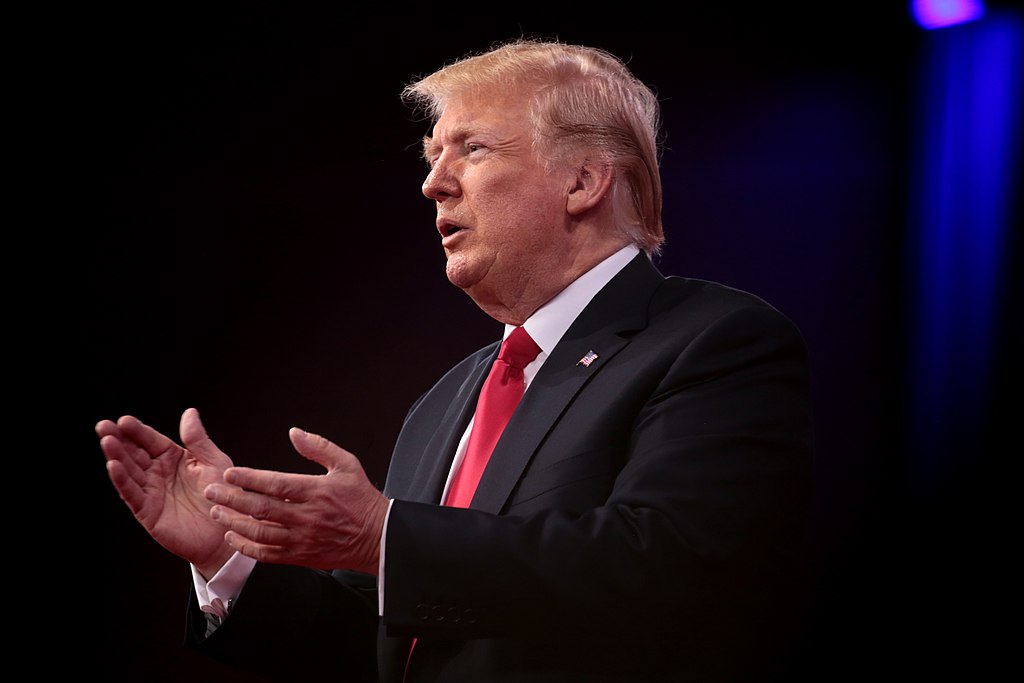As President Donald Trump embarks on his second term in January 2025, his planned international visits offer a window into his administration's foreign policy priorities. These trips underscore a commitment to reinforcing alliances, addressing global security concerns, and advancing economic interests, all under the banner of his "America First" doctrine.
Strengthening Traditional Alliances
President Trump's itinerary includes early visits to key allies such as the United Kingdom, Japan, and Israel. These engagements aim to reaffirm longstanding partnerships and collaborate on mutual security and economic objectives. Notably, a state visit to the United Kingdom is anticipated, where discussions with Prime Minister Rishi Sunak are expected to focus on trade agreements and defense cooperation.
Addressing Global Security Challenges
In light of escalating tensions in regions like the Middle East and East Asia, Trump's planned visits to Saudi Arabia and South Korea signal a proactive approach to regional stability. In Saudi Arabia, dialogues are expected to center on counterterrorism efforts and energy security. In South Korea, discussions will likely address the North Korean nuclear threat and the future of U.S. military presence on the peninsula.
Economic Diplomacy and Trade Relations
The administration's focus on renegotiating trade deals is evident in planned trips to China and Mexico. In China, President Trump aims to address trade imbalances and intellectual property concerns, building upon the Phase One trade deal established during his first term. In Mexico, discussions are expected to revolve around the United States-Mexico-Canada Agreement (USMCA) and immigration issues.
Controversial Engagements
One of the more contentious aspects of Trump's foreign agenda is a proposed visit to Russia. This trip has sparked debate due to ongoing concerns about election interference and human rights issues. Critics argue that engaging with President Vladimir Putin could be perceived as condoning aggressive actions, while supporters contend that dialogue is essential for global stability.
Public Reaction
The announcement of President Trump's foreign travel plans has elicited a spectrum of reactions:
-
@GlobalCitizen: "Engaging with allies is crucial, but we must hold adversaries accountable. Tread carefully."
-
@AmericaFirstPatriot: "Finally, a president who puts our interests first. Strength through diplomacy!"
-
@HumanRightsAdvocate: "Visiting authoritarian regimes sends the wrong message. We must stand for democracy and human rights."
Conclusion
President Trump's 2025 foreign trips underscore a strategic approach to international relations, emphasizing the reinforcement of alliances, proactive engagement in global security, and assertive economic diplomacy. While these initiatives aim to bolster America's standing on the world stage, they also present challenges and controversies that will require careful navigation to maintain global stability and uphold democratic values.



 Trump’s Iran Strikes Spark War Powers Clash in Congress
Trump’s Iran Strikes Spark War Powers Clash in Congress  Melania Trump Chairs Historic U.N. Security Council Meeting on Children Amid Iran Conflict
Melania Trump Chairs Historic U.N. Security Council Meeting on Children Amid Iran Conflict  Trump Says U.S. Attacks on Iran Will Continue, Warns of More American Casualties
Trump Says U.S. Attacks on Iran Will Continue, Warns of More American Casualties  EU Urges Maximum Restraint in Iran Conflict Amid Fears of Regional Escalation and Oil Supply Disruption
EU Urges Maximum Restraint in Iran Conflict Amid Fears of Regional Escalation and Oil Supply Disruption  Marco Rubio to Brief Congress After U.S.-Israeli Strikes on Iran
Marco Rubio to Brief Congress After U.S.-Israeli Strikes on Iran  Trump Announces U.S. Strikes on Iran Navy as Conflict Escalates
Trump Announces U.S. Strikes on Iran Navy as Conflict Escalates  U.S. Lawmakers Question Trump’s Iran Strategy After Joint U.S.-Israeli Strikes
U.S. Lawmakers Question Trump’s Iran Strategy After Joint U.S.-Israeli Strikes  Suspected Drone Strike Hits RAF Akrotiri Base in Cyprus, Causing Limited Damage
Suspected Drone Strike Hits RAF Akrotiri Base in Cyprus, Causing Limited Damage  Russia Signals Openness to U.S. Security Guarantees for Ukraine at Geneva Peace Talks
Russia Signals Openness to U.S. Security Guarantees for Ukraine at Geneva Peace Talks  Supreme Court Backs GOP Lawmaker in New York Redistricting Fight Ahead of Midterms
Supreme Court Backs GOP Lawmaker in New York Redistricting Fight Ahead of Midterms  Does international law still matter? The strike on the girls’ school in Iran shows why we need it
Does international law still matter? The strike on the girls’ school in Iran shows why we need it  UK Accepts U.S. Request to Use British Bases for Defensive Strikes on Iranian Missiles
UK Accepts U.S. Request to Use British Bases for Defensive Strikes on Iranian Missiles  Why did Iran bomb Dubai? A Middle East expert explains the regional alliances at play
Why did Iran bomb Dubai? A Middle East expert explains the regional alliances at play  Trump Warns Iran as Gulf Conflict Disrupts Oil Markets and Global Trade
Trump Warns Iran as Gulf Conflict Disrupts Oil Markets and Global Trade  U.S. Deploys Tomahawks, B-2 Bombers, F-35 Jets and AI Tools in Operation Epic Fury Against Iran
U.S. Deploys Tomahawks, B-2 Bombers, F-35 Jets and AI Tools in Operation Epic Fury Against Iran  Iran Detains U.S. Citizens Amid Escalating Conflict With the United States and Israel
Iran Detains U.S. Citizens Amid Escalating Conflict With the United States and Israel  Zelenskiy Urges Change in Iran After U.S. and Israeli Strikes, Cites Drone Support for Russia
Zelenskiy Urges Change in Iran After U.S. and Israeli Strikes, Cites Drone Support for Russia 




























